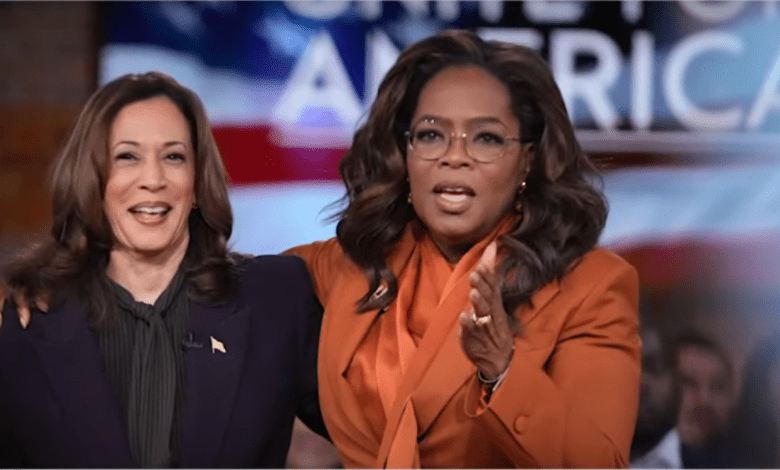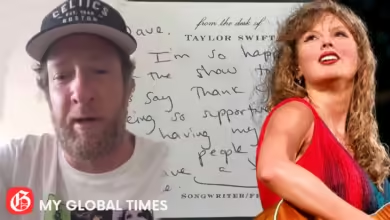
By [Niraj Kumar] – My Global Times
Introduction
In a recent televised conversation, Oprah Winfrey interviewed U.S. Vice President Kamala Harris. What seemed like a promising discussion on national issues quickly turned into an event labeled as “extremely out of touch” by many political observers, including former Democratic fundraisers and Silicon Valley pioneers. This article breaks down the key criticisms raised during the interview and what it reveals about the current political climate.
Oprah’s Disconnect with Working-Class Americans
One of the main takeaways from Oprah’s interview with Kamala Harris is how out of touch it seemed with the struggles of everyday Americans. Oprah, a self-made billionaire and one of the most influential media figures in the world, appeared disconnected from the experiences of regular working-class citizens.
Criticism of Tone and Content
During the conversation, it became evident that Oprah, who has enjoyed immense wealth and success for decades, has little experience with the day-to-day struggles facing many Americans today. For example, the rising cost of groceries and gas, issues that affect millions, seemed foreign to her. According to one former Democratic campaign fundraiser, “She has no idea what it’s like to not be able to afford groceries. She is not affected by the economy right now.” These remarks highlight a broader disconnect between affluent public figures and the general populace.
Diplomatic Fallout: Afghan Diplomat Sparks Tensions by Disrespecting Pakistan’s National Anthem
Kamala Harris’s Remarks on Misinformation
Another focal point of the interview was Harris’s concerns over misinformation. She emphasized how citizens often struggle to discern reliable information, particularly online, adding that this issue impacts people’s ability to make informed decisions. While addressing the seriousness of disinformation, Harris’s statements came across to some as condescending, as if she was underestimating the public’s intelligence.
Criticism from Experts
Allison, a tech pioneer, noted that Harris’s approach sounded patronizing, aligning with other critiques of the Democratic Party’s communication style. The discussion of misinformation led to broader concerns about censorship and free speech, with accusations that the Biden-Harris administration has worked closely with major tech platforms like Facebook and Google to suppress opposing views.
India’s Emerging Leadership in QUAD: US Official Statement Sparks Global Discussions
The Role of Censorship and Free Speech
The Biden-Harris administration’s alleged role in collaborating with big tech companies to control narratives was a heated topic raised by critics during and after the interview. It seemed to some viewers that there was a distinct lack of solutions being presented by Harris, leading them to question the sincerity of her concerns.
Lack of Tangible Solutions
Viewers were also disappointed by what they perceived as a lack of concrete answers or policies discussed during the interview. Instead, there was a heavy reliance on “personal anecdotes, meaningless platitudes, and cliches,” one critic remarked. This created an atmosphere where the audience was expected to applaud without receiving much substantive content, further fueling frustration.
Oprah’s Alleged Insults Towards the Working Class
Perhaps one of the most controversial moments in the interview was Oprah’s comments about McDonald’s employees. Oprah reportedly referenced Harris working at McDonald’s earlier in her career, which to some came across as patronizing towards those currently employed in such roles. The tone and delivery seemed dismissive of the challenges facing those working in low-wage jobs, prompting accusations that Oprah was making fun of working-class citizens.
Tone-Deaf Remarks
“Oprah’s remarks about McDonald’s employees were incredibly patronizing,” said one commentator. Many found this part of the interview to be emblematic of the disconnect between elite figures and ordinary Americans. The idea that there is “hope” for people working at fast-food chains was seen as belittling, especially at a time when economic inequality is a growing concern.
Israel’s Airstrikes on Hezbollah Commanders: Shaping the Middle East Conflict
Democratic Party’s Image Problem
The criticism surrounding this interview touches on a broader issue within the Democratic Party—the perception that it is out of touch with average Americans. In recent years, critics have pointed to what they see as the party’s focus on identity politics and intellectualism over actionable policies for middle and working-class citizens.
The Cult of Personality
Some critics argue that the Democratic Party has created a “cult of personality” around figures like Harris, much like they did with former President Barack Obama. However, as one political commentator put it, “Kamala is not as slick as Obama,” and this has led to a more awkward and less effective public image.
The Conclusion: What Needs to Change?
The Oprah-Kamala interview serves as a case study in how political figures and their media representatives can alienate the public by appearing out of touch with real-world struggles. For the Democratic Party to reconnect with its base, it will need to shift from platitudes to policy—providing concrete solutions to the issues facing millions of Americans today.






2 Comments